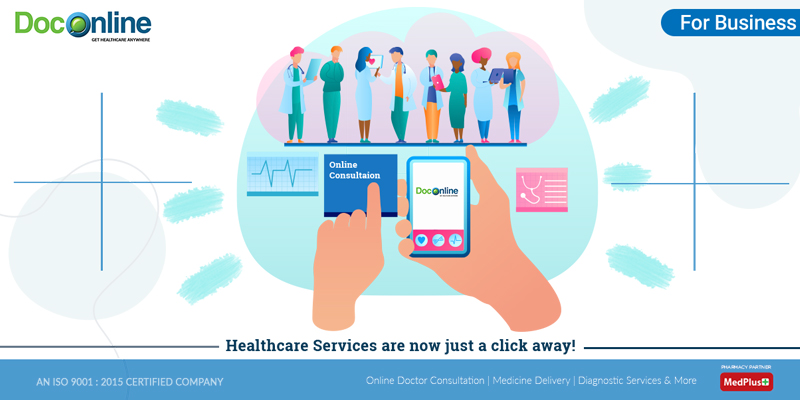Subscription Based Healthcare: Transforming the Method We Consider Health
Subscription Based Healthcare: Transforming the Method We Consider Health
Blog Article
The Rise of Subscription-Based Health Care and Its Influence On Individual Treatment
As medical care progresses, the subscription-based design is getting traction, guaranteeing to reinvent person care by supplying predictability and access. The possibility for these designs to reshape medical care distribution increases pressing inquiries regarding their long-term sustainability and inclusivity. Are these subscription solutions the future of health care, or do they run the risk of leaving vulnerable populaces behind?
Comprehending Subscription Medical Care Designs
Understanding the principle of membership healthcare designs involves examining a transformative technique to medical solutions that emphasizes cost and ease of access. These versions, commonly referred to as straight health care (DPC) or attendant medicine, have actually become ingenious options to standard fee-for-service medical care systems. Membership healthcare enables clients to pay a set monthly or annual cost for a defined collection of clinical services, which may consist of unlimited workplace gos to, regular exams, and basic laboratory examinations, without the need for conventional insurance policy billing.
The framework of registration healthcare designs is created to streamline client treatment by getting rid of third-party payers and intricate billing codes, thus lowering administrative concerns. Doctor can focus much more on individual treatment, cultivating more powerful patient-provider partnerships. This version also promotes preventative care by encouraging routine sees, as the financial challenge of per-visit costs is removed.
The subscription model often encourages doctor to manage smaller sized client panels, enabling for more customized care. It aligns financial incentives with person wellness end results, as providers are encouraged to keep person contentment and health. On the whole, comprehending membership healthcare models calls for identifying their possible to reshape how treatment is provided and accessed.
Benefits for Carriers and individuals

With a consistent income stream, medical care experts can dedicate more time to each patient, leading to a much more detailed and individualized care experience. The emphasis on preventative care within registration plans can lead to far better client end results and decreased lasting healthcare costs.
Challenges and Concerns
While subscription-based healthcare designs present various benefits, they likewise come with a set of challenges and concerns that must be addressed. This raises ethical questions concerning fair accessibility to health care services.
Financial sustainability of subscription-based models is another concern. Suppliers need to stabilize the fixed income from registrations with the variable prices of health care services, which may rise and fall as a result of unpredicted medical needs. This can develop stress to limit solutions or boost fees, possibly affecting client complete satisfaction and care quality.
In addition, Going Here regulatory oversight of subscription-based healthcare designs is still advancing. Addressing these challenges is important for the successful and equitable execution of subscription-based medical care.
Effect On Patient-Doctor Relationships
One considerable influence of subscription-based medical care versions on patient-doctor relationships is the potential for enhanced continuity and personalized treatment. By adopting a subscription model, doctors can handle a smaller sized person panel, permitting for even more committed time with each person. This boosted schedule cultivates a much deeper understanding of an individual's case history, lifestyle, and preferences, enabling extra customized therapy strategies and interventions.

Nonetheless, it is vital to acknowledge that while subscription-based models might benefit those who can manage them, they might inadvertently expand health care disparities. People that are unable to join these designs might experience lower accessibility to customized care, possibly impacting their partnerships with health care service providers. Hence, while the membership model uses promising benefits for patient-doctor relationships, it likewise poses difficulties that need to be dealt with to ensure equitable medical care access.
Future of Medical Care Access

The role of technology can not be ignored in this makeover. Telemedicine systems and digital wellness documents promote smooth interaction in between people and doctor, breaking down geographical and logistical barriers. Additionally, developments in expert system and information analytics can better individualize healthcare by anticipating client needs and optimizing therapy strategies.
Nonetheless, the future of medical care gain access to likewise presents obstacles, such as making certain equity throughout different socio-economic teams. Policymakers and medical care suppliers need to work together to bridge the electronic divide, making certain that subscription-based designs remain inexpensive and comprehensive. As these systems develop, they hold the guarantee of making healthcare extra easily accessible, efficient, important source and patient-centric.
Final Thought
Subscription-based healthcare models are reshaping client care by offering a steady expense structure and enhancing ease of access. The increase of subscription-based health care motivates positive client interaction, which has the prospective to enhance client results and satisfaction, indicating a transformative shift in healthcare distribution.
As healthcare advances, the subscription-based version is getting traction, guaranteeing to transform client care by offering predictability and accessibility.Subscription-based medical care versions use unique advantages for both suppliers and clients, enhancing the overall medical care experience.As health care systems develop, the future of healthcare accessibility often hinges on the assimilation of cutting-edge designs and innovations.Subscription-based healthcare versions are reshaping patient treatment by offering a secure expense structure and boosting ease of access. The rise look at here of subscription-based medical care encourages aggressive client engagement, which has the possible to improve individual outcomes and contentment, indicating a transformative shift in health care delivery.
Report this page